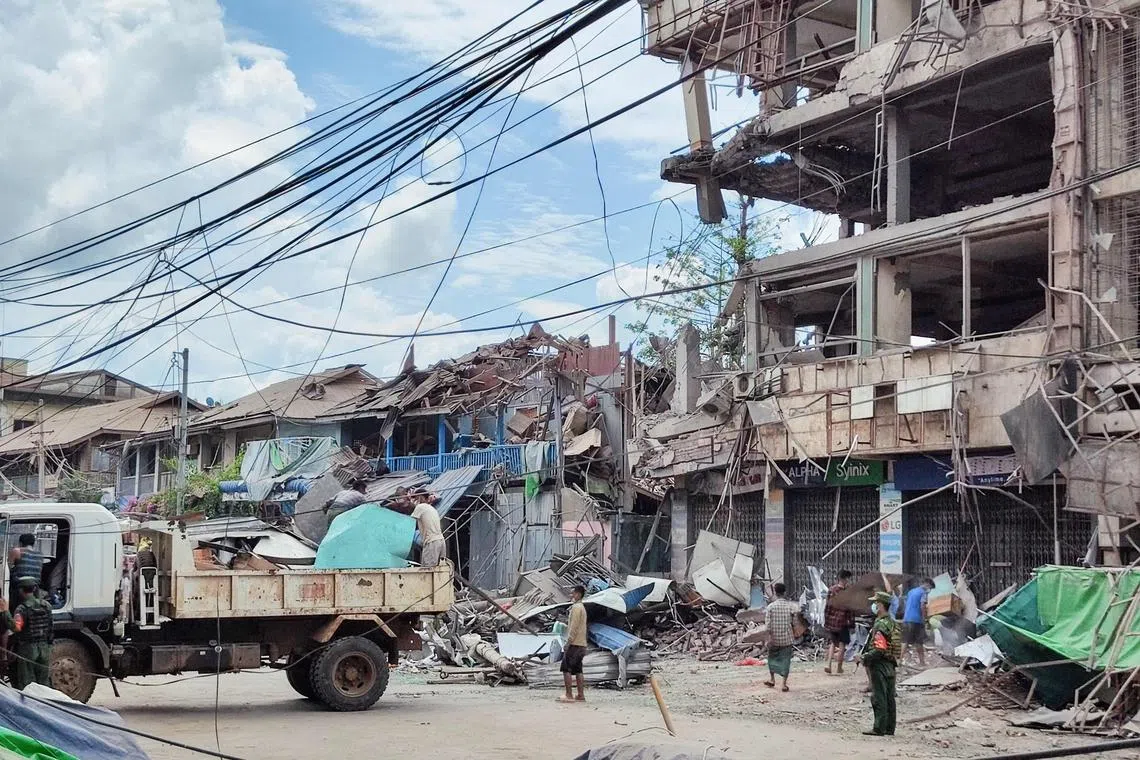UN expert says response to Myanmar war ‘not working’
Sign up now: Get insights on Asia's fast-moving developments

UN special rapporteur Tom Andrews said more than three million people have been displaced by fighting in Myanmar.
PHOTO: AFP
SYDNEY – Global efforts to stop Myanmar’s civil war are clearly not working, a UN expert warned on Oct 10 as he urged leaders to starve the ruling junta of “money, weapons and legitimacy”.
Describing a situation that has “gone from bad, to worse, to horrific”, UN special rapporteur Tom Andrews said more than three million people have been displaced by fighting in the South-east Asian nation in as many years.
The conflict is on the table at this week’s meeting in Laos of South-east Asian leaders, who pressed Myanmar’s junta and its opponents to take concrete action to stop the bloodshed.
Since Mynamar’s military seized power in February 2021,
Yet, despite its firepower, it has struggled to quash multiple armed offensives from ethnic groups and civilian militias across several states.
It has lost control of swathes of the country
During a visit to Australia, Mr Andrews said the regime had lost “tens of thousands” of soldiers in battle and had turned to conscription to reconstitute its forces.
“The junta has been responding to its losses by escalating attacks on civilian targets,” he said, estimating that junta forces have killed more than 5,600 civilians.
Mr Andrews urged regional and global powers to deploy further legal, financial and trade sanctions.
“There is a great imperative for international action,” he said, urging regional powers to starve the regime of “money, weapons and legitimacy”.
“The international response to this crisis is clearly not working,” he said while calling for an emergency summit.
“I am worried that the deepening crisis in Myanmar has become invisible to much of the world.”
Mr Andrews also urged Australia and like-minded nations to help prosecute Myanmar’s leaders for genocide and back moves to bring war crime charges before the International Criminal Court in The Hague.
Those prosecutions relate, for the most part, to decades of persecution of the Rohingya Muslim minority, who have been killed, abducted and forced over the border into neighbouring Bangladesh.
Bangladesh is home to around one million Rohingya refugees, most of whom fled a 2017 crackdown. AFP


